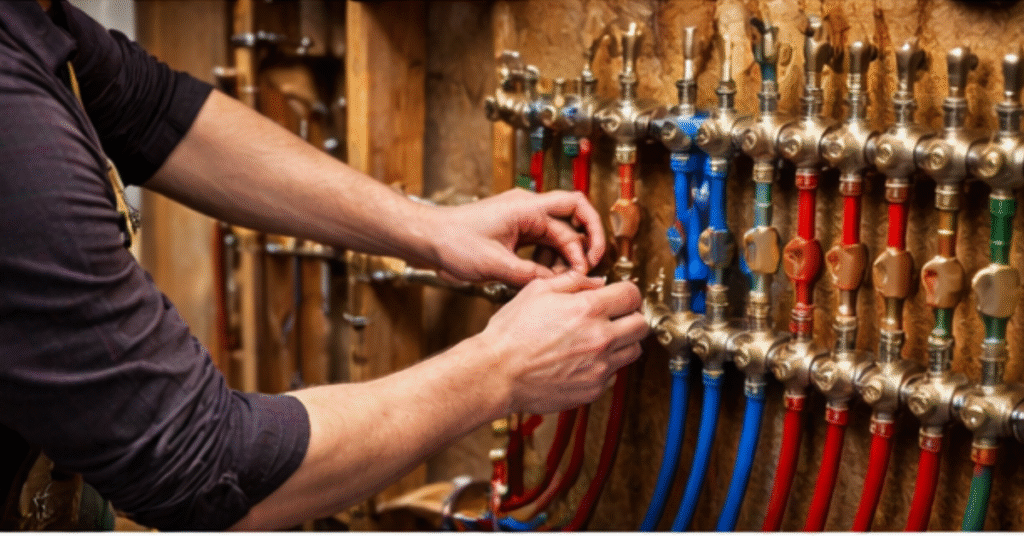
If you live in an older Tacoma home, you may have heard about the risks of lead pipes—but how serious is the threat, and what can you do about it? With growing awareness about water safety and aging infrastructure across Washington State, it’s more important than ever for homeowners to understand whether their plumbing contains lead—and how to identify it.
In this blog, we’ll break down where lead piping still exists in Tacoma, how to check your home, and why timely inspection and replacement matter.
⚠️ Why Lead Pipes Are a Problem
Lead pipes were commonly used in homes built before the 1950s. Even homes built through the 1980s may have lead solder or brass fixtures that contribute to contamination. The issue? Lead can leach into your drinking water, especially if pipes corrode over time. According to the Environmental Protection Agency (EPA), no level of lead in drinking water is considered safe, particularly for children and pregnant women. Prolonged exposure can lead to serious health issues, including:
- Developmental delays in children
- High blood pressure
- Kidney damage
- Neurological problems
🏡 Are Tacoma Homes at Risk?
Yes—many Tacoma homes built before the 1986 ban on lead plumbing are potentially at risk. Although the City of Tacoma Water Utility replaced many public lead service lines, the private side of the plumbing (your home’s internal system) may still contain lead components.
The City of Tacoma encourages residents to identify whether their home’s service line or interior pipes contain lead. However, identifying lead isn’t always straightforward—especially in older neighborhoods like Proctor, Stadium District, and parts of South Tacoma, where original infrastructure may still be in place.
🔍 How to Check for Lead Pipes in Your Tacoma Home
Here are five steps you can take to determine whether your home has lead pipes:
1. Check the Age of Your Home
If your house was built before 1986, it might contain lead pipes, fixtures, or solder. Tacoma’s historic housing stock includes many homes from the early 1900s, so age is an important first clue.
2. Inspect Exposed Pipes
Look at pipes in your basement, crawl space, or under sinks. Lead pipes are typically:
- Dull gray in color
- Easily scratched with a coin (revealing shiny metal)
- Non-magnetic (try a magnet to test)
3. Test Your Water
You can request a lead testing kit from the City of Tacoma or purchase one from a hardware store. Testing is the most accurate way to detect lead levels in your drinking water. According to the CDC, this is especially important if young children or pregnant women live in the home.
4. Review City Records
Use Tacoma Public Utilities’ online records or call their service line to see if your public water line was ever part of a lead line replacement program. This can help rule out part of the risk.
5. Call a Professional for Inspection
If you’re unsure about identifying lead plumbing, a licensed plumber can provide a full home inspection and recommendations for replacement if needed.
💡 What to Do If You Have Lead Pipes
If you confirm or suspect your home has lead plumbing, don’t panic—but act quickly. Start by:
- Using a water filter certified to remove lead (look for NSF/ANSI Standard 53 or 58)
- Flushing your pipes by running water for 30 seconds to 2 minutes before use
- Avoiding hot water from the tap for drinking or cooking (it increases lead leaching)
- Planning a pipe replacement, especially if lead pipes are confirmed
🛠️ Partner with Tacoma’s Trusted Plumbing Experts
Removing lead pipes isn’t just a safety upgrade—it’s an investment in your home’s long-term value and your family’s health. At Einstein Pros Tacoma, we provide comprehensive pipe inspections, repiping services, and water quality solutions tailored to your home.
Our experienced, licensed plumbers can help you identify lead risks, recommend replacement options, and ensure your water is safe—without the guesswork.
📞 Schedule Your Lead Pipe Inspection Today
If you’re concerned about lead plumbing in your Tacoma home, don’t wait. Contact Einstein Pros Tacoma today to schedule a pipe inspection or water quality test. We’re proud to serve the Tacoma community with reliable, transparent plumbing solutions you can trust.
Sources:
